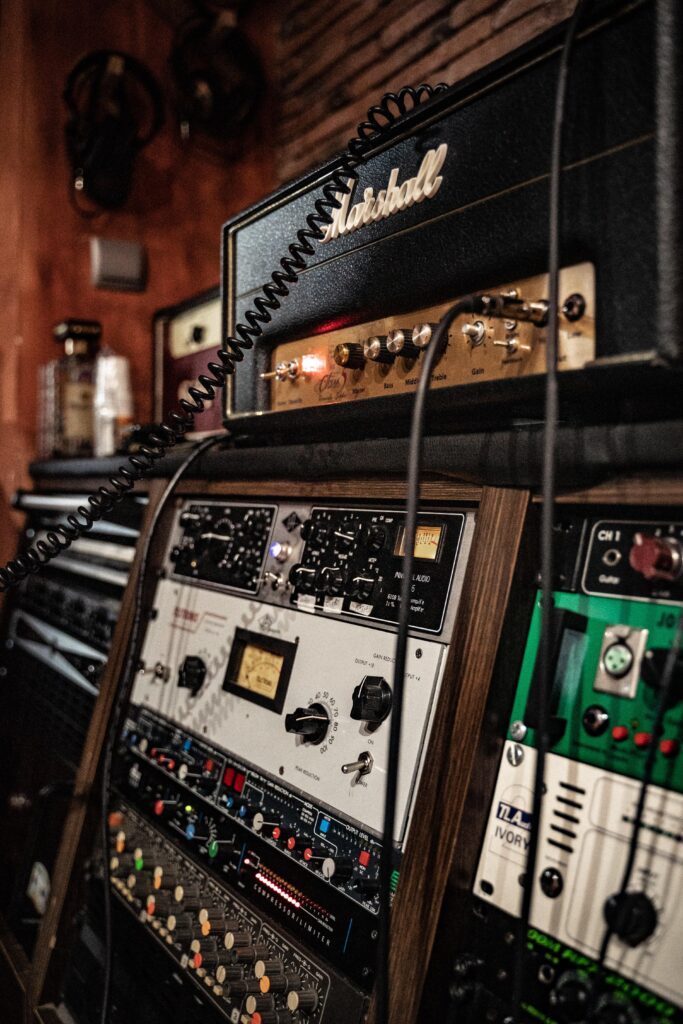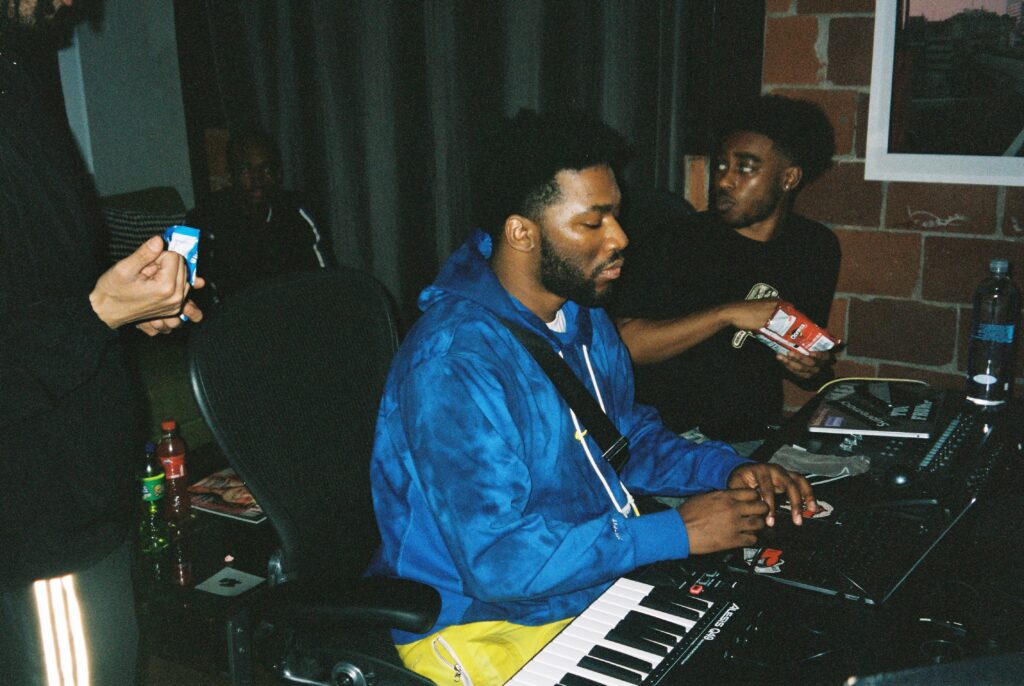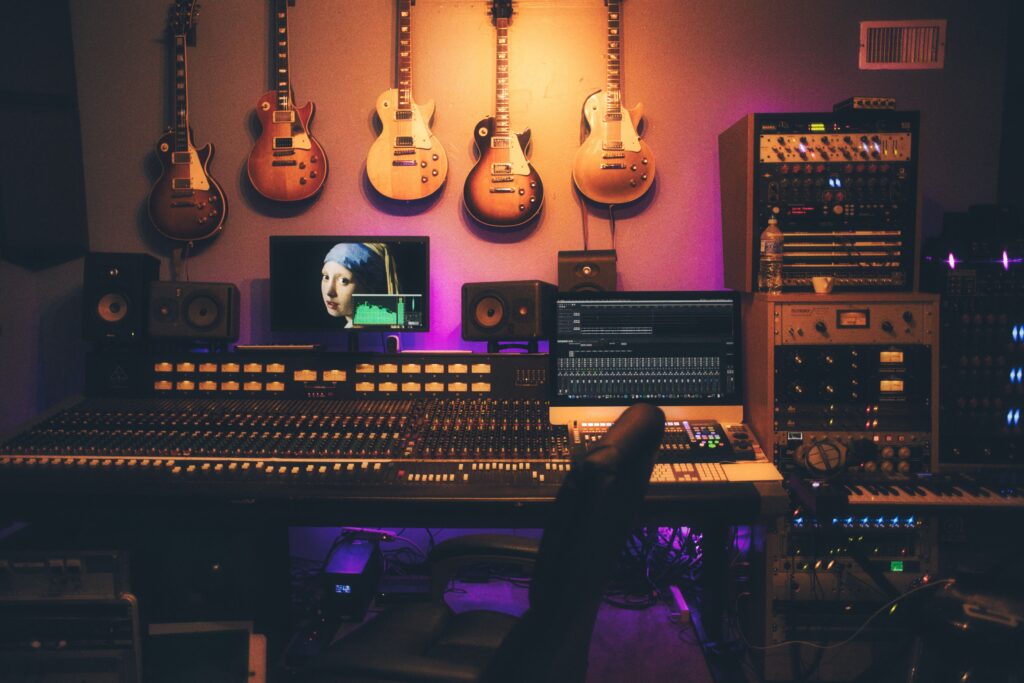All great movies have something in common. It’s not something that you think about right away but it makes the difference between a good movie and a great one. Yes, we’re talking about the soundtrack. Every score used in a movie soundtrack is not there by chance. It has been carefully selected or composed to fit the director’s vision perfectly. But writing music that captures the themes, tones, and even character arcs of a film takes much more than just knowing how to play music. To create an original score you need to have one foot in the world of visual storytelling and the other in the world of music and some madmen and women can bridge the gap between sound and vision perfectly. “Film composers” as we call them. Today, we are taking a look at The Fascinating Creative Process of Film Composers. So sit tight and fasten your seatbelt because we’re about to go on quite the trip!
Let the music come to you
Christopher Young, the mind behind the soundtrack of Spider-Man 3, starts off his creative process by watching the film without temp music. It allows him to kickstart his creativity and music slowly starts dancing in his head. Just like magic, the moving images present in front of him can generate the first musical ideas. Without them being influenced by the temp music. Something most composers would agree on. As soon as he has the footage in mind, he steps away from it for anywhere between 7 to 10 days all while spitting any musical idea that pops into his mind directly on his cellphone.
And if you didn’t believe us when we called composers mad, you certainly haven’t seen Christopher at work. Well, obviously you need a bit of madness to create greatness. But the ideas he spits on his phone are nothing like you would imagine. You would think he describes it with words, whereas it sounds more like “Dada-doodoo-da-dee BRRRMM”. In that timelapse, he can come up with about 50 to 70 thematical ideas and at that moment, he goes back to the film. From there on, he needs to see what works and what gets flushed down the toilet.
Go big or go home

For Hans Zimmer and Clint Mansell, tailoring their artistry to fit a vision that isn’t their own comes down to using big speakers and great gear. Because it allows them to truly make music that fits the director’s vision. And I think we can all agree that The Dark Knight trilogy wouldn’t be the same without Hans’ music. Nor would Requiem for a Dream touch you so deep down without Clint’s scores. But if you’ve never heard any of the soundtracks composed by these two geniuses, stop reading right now. Go listen. Have fun. Cry a little because it’s beautiful. Thank us. Come back. Continue reading.
Now that that’s out of the way, let us explain a bit further. When they compose music for a film, they do stick to the storytelling but they’re not thinking about what it is going to sound like when you watch the movie on a Netflix and chill night. They’re always thinking big. Big screen, big speakers, and a big story. That’s why they say that for them it comes down to the gear. All because if they didn’t have big speakers, they feel like they wouldn’t be able to freely modulate the soundwaves to match the story. They want to explore every frequency possible and for that, you need gear that can handle the job. They want to use their devices to create sounds no one has ever heard before while giving the film the soundtrack it deserves.
Allow yourself to make mistakes
If there’s something all three can agree on is that beautiful things can come out of the dumbest mistakes. Patching something into the wrong hole, using the wrong instrument. Everything is part of the big discovery trip composers dive into when working on a score. Mistakes can help you escape muscle memory and come up with something new and fresh. For them, whenever you work on music for so long, your body builds habits, some sounds start to sound similar and once you allow yourself to settle, you will find it much more difficult to create something new that revs your engine. That’s why using your mistakes can help you engage your brain more and are a big component of their creative process.
Have fun

Sounds like something your grandma would say when dropping you off at a summer camp but it’s very important to them. If they’re not having fun, playing around, and feeling like time flies while working on a film, Hans, Clint, and Christopher will simply stop working right away. I don’t know about you but we think that it just makes sense. Composers put their souls into their tracks and if your heart is not 100% into the project then people will feel it when watching the movie afterward.
Know when to ask for advice and ideas
Composers can sometimes get lost in their own world and knowing when to look outward for advice and ideas is actually a big part of the creative process. After two weeks of watching the film and recording his musical ideas, Christopher enlists the help of his assistants. But they don’t really assist him the way you would think. They’re here to essentially listen to his ideas and tell him that not all of them are, pardon my french, trash – only 99% of them. And that’s a good thing because composers can be very self-critical and when they listen to their ideas over and over again they can start thinking that none of them fit the film.
So, once again, looking for outside inspiration and help allows them to be less harsh on themselves. Overthinking is the archnemesis of creativity. So having people that can give you honest and objective opinions can help make your creative process a lot smoother.

In summary, let loose
If I had to resume what we learned from the Fascinating Creative Process of these Film Composers is that you need to just let loose and allow the music to come to you. Never try too hard and if your idea doesn’t work, well, you will have a hundred more if you just trust yourself. Also, every creative process is different but for music composers apparently, big speakers make quite the difference. So if you’re ever feeling like you can’t start up your creativity, go buy the biggest speakers you can find. It should do the trick. Or maybe not, but it’s definitely worth a shot. After that, just experiment, make mistakes and have fun!
If you want to read some more articles about music and video, you might like checking out our article “Music, the centerpiece of any good ad.“, just saying. But anyway, see you next time!







